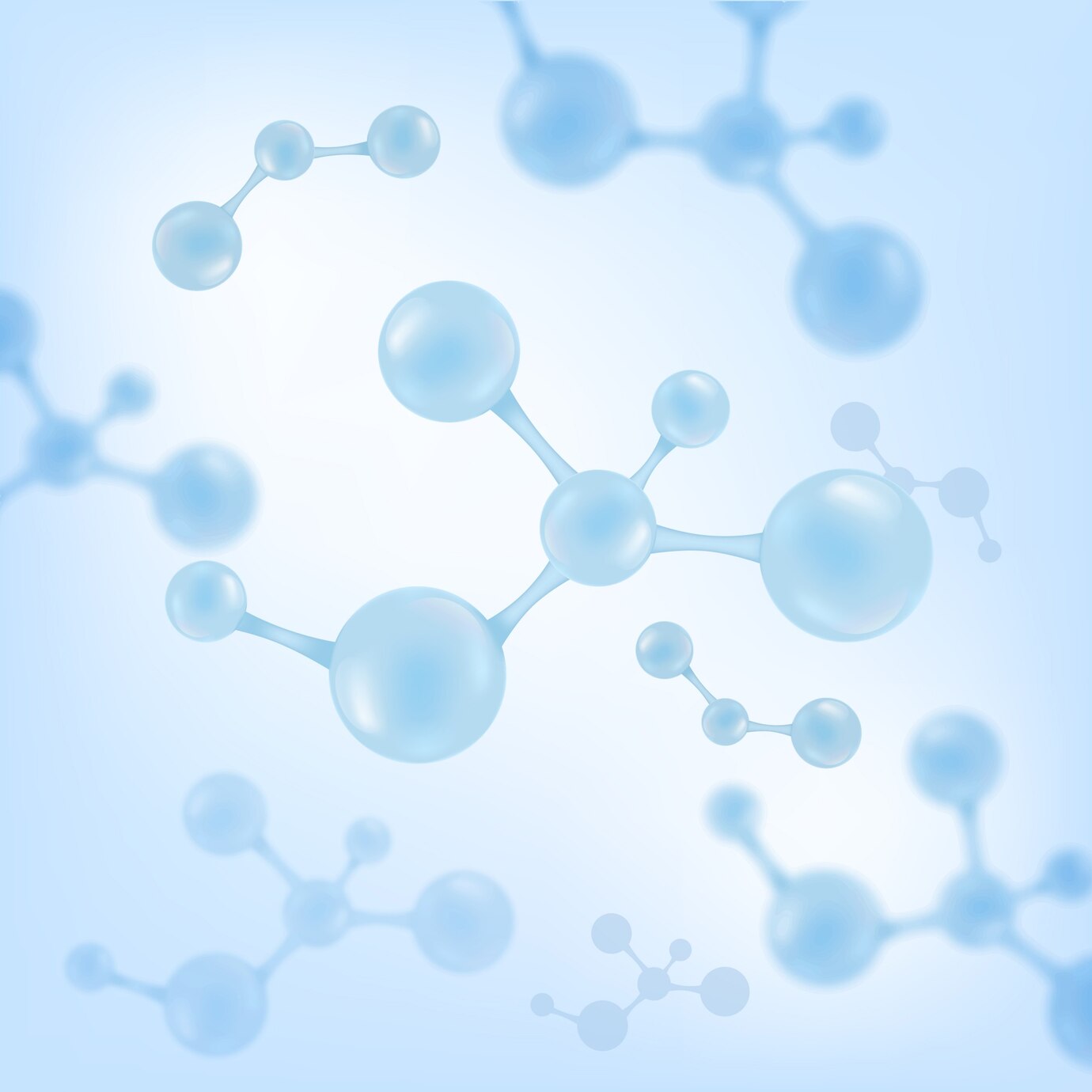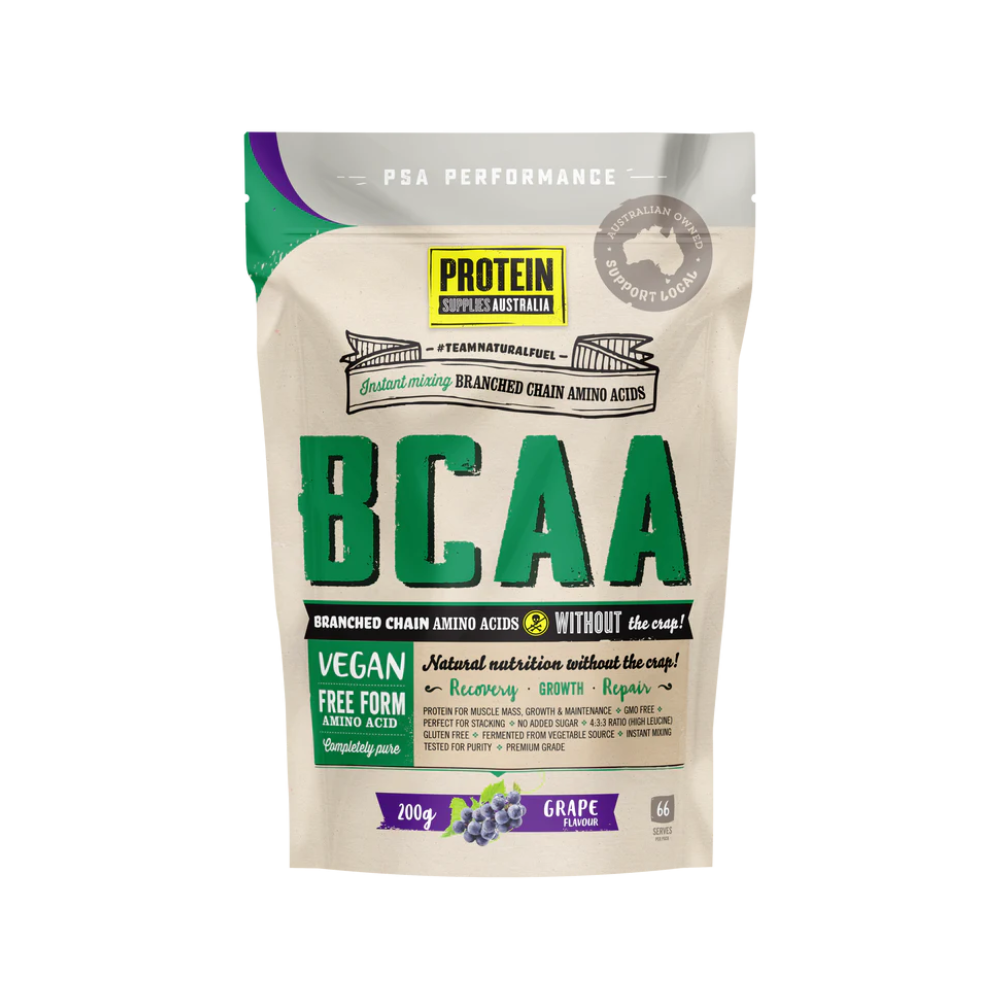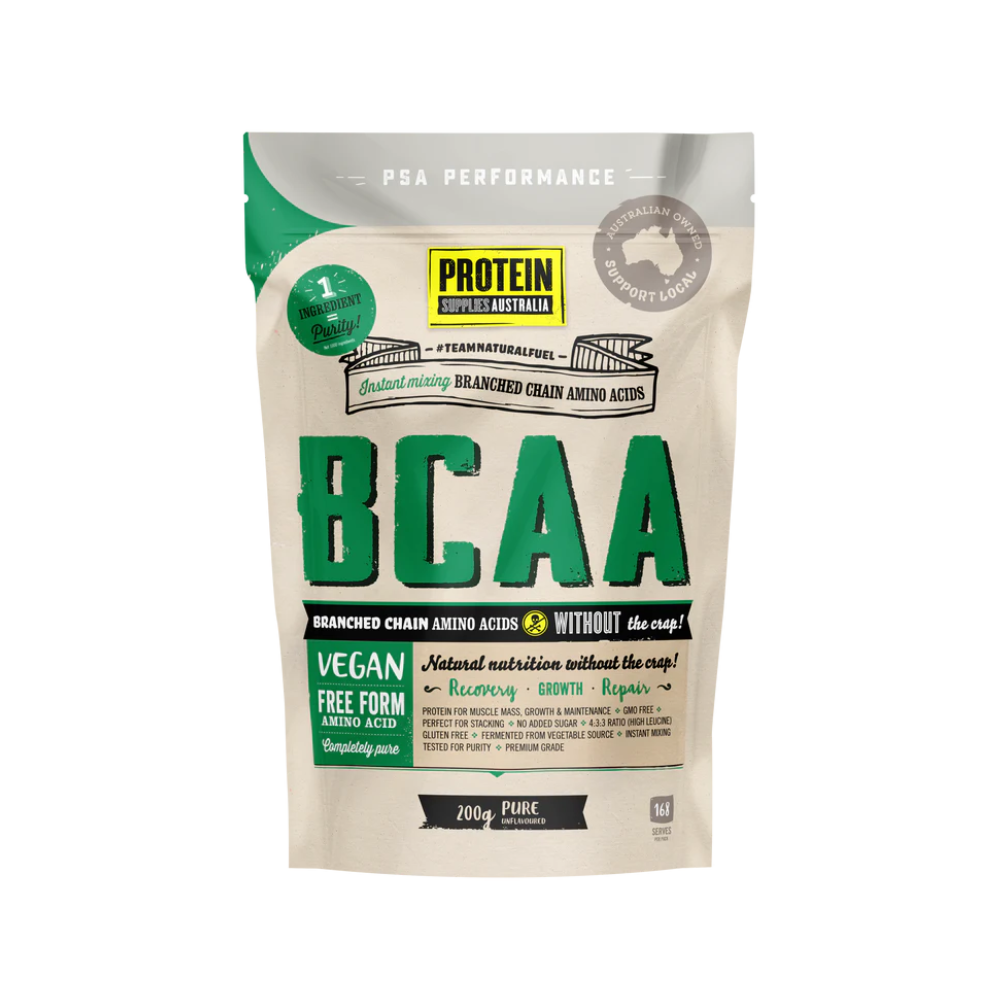What is BCAA? Branched-chain amino acids (BCAAs) consist of three vital essential amino acids—leucine, isoleucine, and valine—that are crucial for supporting muscle growth, enhancing exercise performance, and stimulating muscle protein synthesis. Unlike other amino acid mixtures, BCAAs bypass the liver and go straight to the muscles, making them especially valuable for athletes and fitness enthusiasts.
1. What are BCAAs?
Definition of BCAAs
Branched-Chain Amino Acids (BCAAs) refer to three key essential amino acids—leucine, isoleucine, and valine—that are critical for muscle function and recovery.
They are termed “branched-chain” due to their unique chemical structure, which features a branched chain of carbon atoms.
Unlike other amino acids, BCAAs are not synthesised by the body and must be obtained through diet or supplements. This makes them essential amino acids, crucial for various bodily functions and overall health.
Importance of BCAAs in the Human Body
BCAAs play a pivotal role in muscle growth and repair, energy production, and neurotransmitter synthesis.
They are also involved in regulating blood sugar levels and the metabolism of fatty acids. For athletes and those who engage in regular physical activity, BCAAs are particularly beneficial.
They help reduce muscle soreness and fatigue, improve endurance and performance, and support muscle growth and repair. By incorporating BCAAs into your diet or through supplementation, you can enhance your physical performance and recovery.
1. Promote Muscle Growth
Among the nine essential amino acids, leucine stands out for its ability to stimulate protein synthesis via the mTOR pathway.
This makes BCAAs a go-to for those looking to gain muscle or improve their physical performance. Though all essential amino acids are needed for muscle growth, BCAA supplementation has been shown to provide a targeted boost for muscle mass, especially when combined with resistance training.
2. Prevent Muscle Breakdown
Muscle breakdown, also known as muscle atrophy, can be a major concern for older adults, those with chronic illnesses, or during periods of intense training.
BCAA supplements—especially leucine—may help prevent muscle breakdown, even under catabolic conditions such as liver disease, cancer, or traumatic brain injury. This makes BCAAs an important component in both sports nutrition and clinical recovery plans.
3. Decrease Muscle Soreness
Delayed-onset muscle soreness (DOMS) can hinder performance and recovery.
Research suggests that consuming BCAAs before or after workouts can help decrease muscle soreness and muscle damage, as measured by biomarkers like creatine kinase. This benefit is particularly pronounced in resistance exercise routines.
5. Improve Endurance and Performance
BCAAs have been shown to significantly improve endurance and performance in athletes and active individuals. By reducing muscle damage and fatigue, BCAAs help enhance exercise performance and delay the onset of fatigue. They also increase the production of energy-rich molecules like ATP, which is essential for muscle contraction and relaxation. Studies have demonstrated that BCAA supplementation can improve endurance and performance in various types of exercise, including running, cycling, and weightlifting. This makes BCAAs a valuable addition to any fitness regimen aimed at boosting athletic performance.
4. Reduce Exercise Fatigue
During prolonged workouts, central fatigue can limit endurance. BCAAs compete with aromatic amino acids like tryptophan, reducing serotonin production in the brain and delaying the onset of fatigue. This makes BCAAs a smart pre-workout strategy to improve athletic performance.
5. Support Liver Health
In patients with liver cirrhosis or liver cancer, altered amino acid profiles often include reduced BCAAs and increased AAAs. BCAA supplementation can help balance these levels, potentially reducing risks of hepatic encephalopathy, a serious condition related to toxin buildup in the brain. Clinical trials also show promise in improving blood sugar control and immune system function in patients with liver disease.
8. Potential Benefits for Cardiovascular Health
Emerging research suggests that BCAAs may offer potential benefits for cardiovascular health.
BCAA supplementation has been shown to improve lipid profiles, reduce inflammation, and enhance insulin sensitivity, all of which are crucial for reducing the risk of cardiovascular disease.
Additionally, BCAAs may improve the function of the endothelium, the inner lining of blood vessels, further supporting cardiovascular health. While more research is needed to confirm these findings, the available evidence indicates that BCAAs could be a useful adjunct to traditional cardiovascular therapies, offering a holistic approach to heart health.
6. How to Take BCAAs
BCAA supplements come in powder or capsule form and can be taken before exercise, post-workout, or even before sleep.
When using a bcaa supplement, it is important to follow dosage recommendations provided by the manufacturer and consider safety guidelines.
However, BCAAs are also naturally found in protein-rich foods such as eggs, dairy, beef, fish, and poultry. Many athletes choose to supplement on top of a high protein diet to ensure optimal intake.
7. Dosage and Safety
Standard dosages range between 5–20 grams per day. The dietary reference intakes for adults are:
-
Leucine: 42 mg/kg
-
Isoleucine: 19 mg/kg
-
Valine: 24 mg/kg
While BCAA supplements may benefit many users, excess consumption can lead to side effects, especially in people with diabetes, mental health conditions, or maple syrup urine disease.
8. Potential Drug Interactions
BCAA supplements may interact with:
-
Diabetes medications (may worsen insulin resistance)
-
Steroids (affect blood sugar)
-
Levodopa (used for Parkinson’s disease)
It's always advisable to speak with a healthcare professional before using dietary supplements, particularly if you're taking medications or managing any health conditions.




Casein Protein vs Whey: Which Is Better for Your Fitness Goals?
Creatine Supplementation: Benefits and Risks